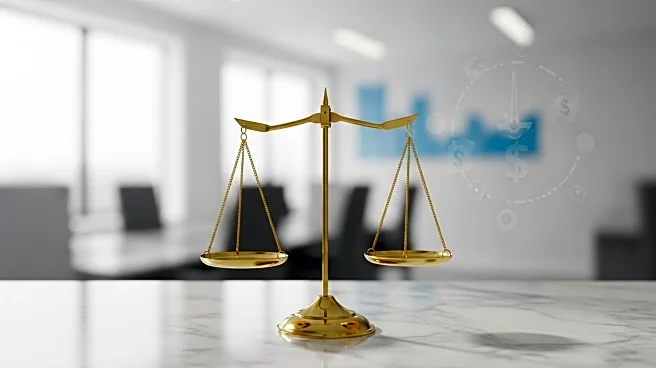What's Happening?
Charlie Javice, former entrepreneur and founder of the startup Frank, has been sentenced to over seven years in prison for orchestrating a $175 million fraud against JPMorgan Chase. Javice tearfully apologized to JPMorgan shareholders, her friends, family, and former employees, expressing profound remorse for her actions. Her startup, Frank, was acquired by JPMorgan in 2021, but it was later revealed that Javice had fabricated customer data to inflate the platform's value. The sentencing marks a dramatic fall from grace for Javice, who was once celebrated as a rising star in financial technology.
Why It's Important?
The case of Charlie Javice highlights significant issues in corporate due diligence and the potential for fraud in the tech industry. JPMorgan's acquisition of Frank, based on falsified customer data, underscores the importance of thorough verification processes in mergers and acquisitions. Javice's sentencing serves as a cautionary tale for entrepreneurs and investors, emphasizing the need for transparency and integrity in business practices. The case also draws parallels to other high-profile tech frauds, raising questions about the ethical responsibilities of startups and the impact of deception on stakeholders.
What's Next?
Charlie Javice's codefendant, Olivier Amar, awaits sentencing, and both defendants are expected to appeal their convictions. The case may prompt JPMorgan and other financial institutions to reevaluate their due diligence processes to prevent similar incidents in the future. Javice's sentencing could influence regulatory discussions about fraud prevention and corporate accountability in the tech industry. As the appeals process unfolds, there may be further scrutiny of the circumstances surrounding the acquisition and the broader implications for financial technology startups.
Beyond the Headlines
The downfall of Charlie Javice raises ethical questions about the pressures faced by entrepreneurs in the competitive tech industry. Her case highlights the potential consequences of prioritizing growth and success over honesty and transparency. The involvement of prominent appellate attorney Alexandra Shapiro in Javice's defense reflects the high stakes of the appeals process and the broader implications for corporate fraud cases. The case may influence cultural perceptions of entrepreneurship and the importance of ethical decision-making in business.











